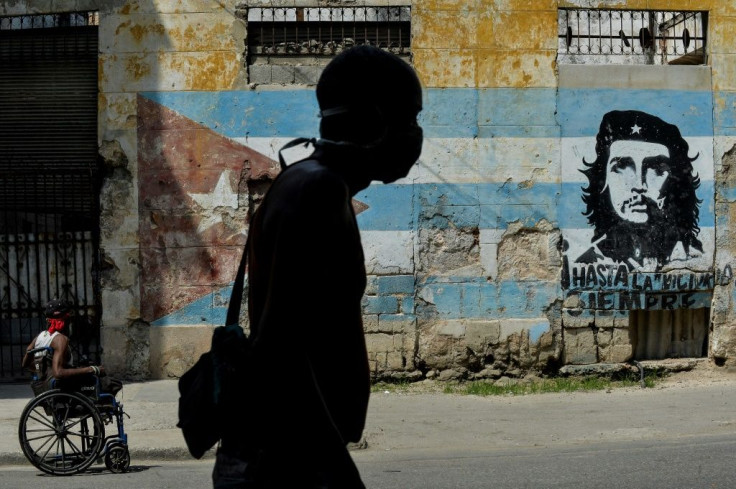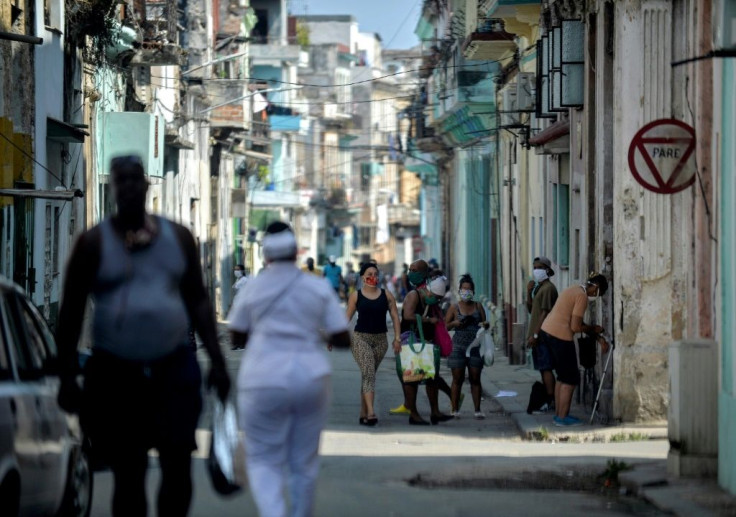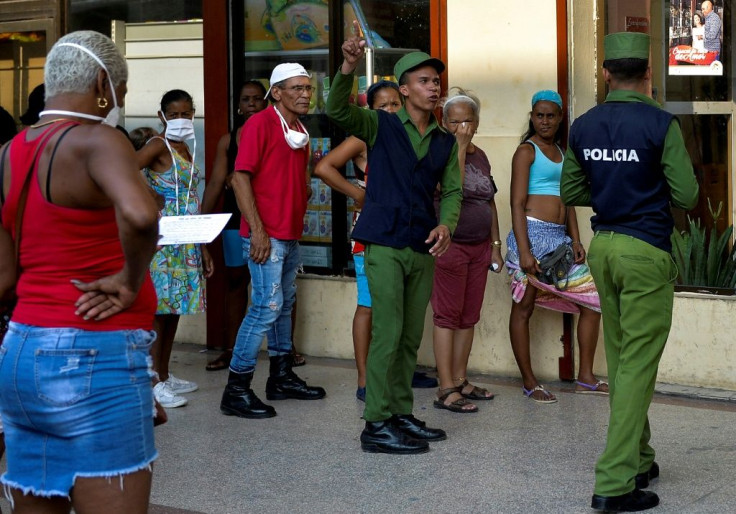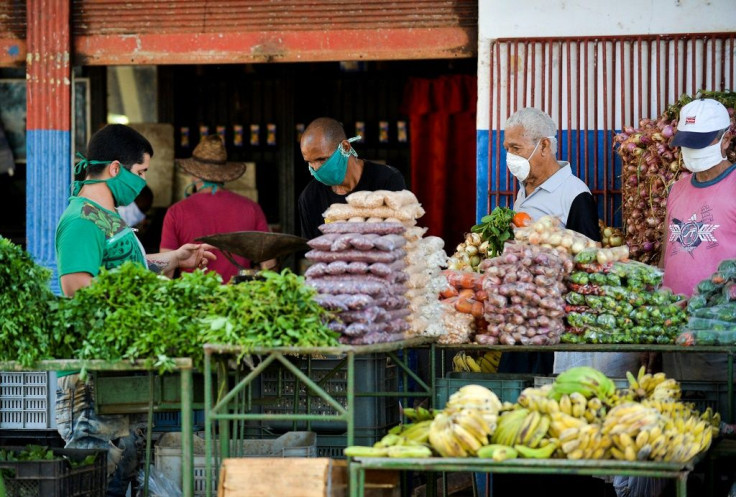In Virus-hit Cuba, The Struggle To Get Food On The Table
Yadira types out a message to her WhatsApp group, with the name of a Havana store where a supply of chicken has just arrived.
Cuba already suffered from food shortages, but the coronavirus crisis has made finding food for the dinner table a veritable scavenger hunt, with supply chains in disarray.
"We get up early in the morning and, like little ants, we scurry back home before 6:00 pm" to respect anti-virus safety guidelines, says retiree Angela Martinez.
The 55-year-old wears a face mask when she does her shopping. Such coverings are required now in public places.

So far, Cuba has recorded more than 1,200 coronavirus cases and 43 deaths. Schools and borders are closed, and all public transport is suspended. Most people are asked to work from home.
The health situation appears to be under control, at least for now.
"We have not seen an explosion in the number of cases like in other countries," says Jose Moya, the local representative of the World Health Organization.
"That speaks to the country's organizational strengths, because of its health care professionals," he adds.

According to the WHO, Cuba has 82 doctors per 100,000 citizens -- far more than in the United States, where the number is 32. In France, it's 26 per 100,000.
But the food situation is another story.
Cuba imports 80 percent of what it eats -- in 2019, that amounted in $2 billion in food products.
Most of that comes from Europe, Havana's top trade partner, but the continent has been hit hard by the pandemic, and those trade routes are disrupted.

Economy Minister Alejandro Gil admitted: "We must look for domestic solutions, as we don't know which foods our suppliers are going to stop making."
A report from a Western embassy seen by AFP warned that "food export restrictions by some supplier nations" would "threaten supply chains" on the island.
"Stockpiling will exacerbate the already numerous shortages in Cuba," it added.

In WhatsApp groups like the one Yadira belongs to, Cubans share details about sought-after products: rice, meat, even toothpaste.
Those informal channels of communication do not keep lines from forming outside shops, Police and security forces try to ensure that shoppers practice social distancing.
"The line is creeping ahead. I got here at 9:00 am and left at 4:00 pm. I bought everything, as I can't come back again," one woman who identified herself as Matilde said on WhatsApp.
To prevent crowds from forming, only small shops are open; bigger supermarkets are closed.
The government set up an online shopping portal in recent weeks, but it was difficult to access because of how slow internet service runs here.
Every Cuban receives a monthly stock of supplies, which now includes disinfectant. But the food portion is not enough for most families.
The pandemic has soured the overall economic outlook for Cuba, which was already far from stellar. Tourism, one of the primary sources of hard currency, has come to an abrupt halt.
Power consumption is up because so many people are staying at home. Of course, that means more frequent power cuts, and the government has asked people to limit their usage.
For political analyst Jorge Gomez Barata, the coronavirus crisis on top of the ongoing US trade embargo means Cuba will be trying to boost its economy "in the worst conditions."
Despite the formidable obstacles, Cubans say they believe they will get through this crisis.
"It's like nothing we've ever experienced. We are learning every day. It's not easy," admitted Roberto Sanchez, a 57-year-old agricultural engineer shopping in Havana.
Martinez added: "We are trying to find a solution with what we have."
Residents are coming together -- neighbors are making masks for each other, and helping each other to find food.
"Yesterday, I was able to buy chicken thanks to you!" said another member of Yadira's WhatsApp group, after she sent her message.
© Copyright AFP 2024. All rights reserved.




















